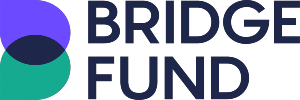Get a Buiseness loan today
Business loans Netherlands
Simple business loans
Up to €500,000
The money will be in your account the next working day

Recommended

Amount
€ 5000 – 250.000
Term
1-24 months
Interest rate
Varies
Verified Company
Non-committal application
Apply in 5 minutes
Example: Loan amount €40,000. Loan term 24 months. Interest rate 1.3% per month. Weekly payment €504.62. Total repayment €52,480. Repayment per week €504.62. Fixed interest 0.5% + premium surcharge 0.8%.

Amount
€ 5000 – 500.000
Term
3-24 months
Interest rate
1.0-2.3%
Costs are based on your company’s risk profile. The one-time closing costs of 2% (minimum €650) are not included.

Amount
€ 1000 – 50.000
Term
1-36 months
Interest rate
2,4 %
Verified Company
5-star reviews
Quote same day
Example: Loan amount €19,000. Loan term 26 months. Interest rate 2.2%. Monthly payment €967.38. Interest & costs €236.61. Repayment per month €730.77. Total repayment €25,151.95.

Amount
€ 1000 – 500.000
Term
1-18 months
Interest rate
Individual
Verified Company
Apply in 1 min
Payment within 24 hours

Amount
€ 5.000 – 500.000
Term
12-60 months
Interest rate
3,0 %
Example: Loan amount €200,000. Loan term 36 months. Interest rate 3.0%. Monthly payment €8,414.25. Interest & costs €2,500.00. Repayment per month €5,914.25. Total repayment €302,912.95.

Amount
€ 20.000 – 1.000.000
Term
3-60 months
Interest rate
3.8-12%
The Different Types of Business Loans in the Netherlands
Business loans in the Netherlands come in various forms, each designed to meet specific financial needs and scenarios. Understanding the different types of loans available can help you choose the right option for your business, whether you’re looking to manage cash flow, expand operations, or finance new equipment.
Here are some of the most common types of business loans offered in the Netherlands.
Term Loans
Term loans are a traditional form of a loan where a business borrows a lump sum of money, which is then repaid with interest over a predetermined period. These are ideal for funding specific investment projects or capital expenditures.
Lines of Credit
A line of credit provides a business with access to a pool of funds to draw from when needed. This type of loan is perfect for managing business cash flow and unexpected expenses since you only pay interest on the amount you use.
Invoice Financing
Invoice financing allows businesses to borrow money against the amounts due from customers, providing immediate working capital to improve cash flow. This is particularly useful for businesses that have long invoice cycles.
Equipment Financing
Equipment financing is tailored for the purchase of new machinery or vehicles. It often involves the equipment serving as collateral for the loan, which typically helps to secure lower interest rates.
Microloans
Microloans are smaller loan amounts typically offered to startups and smaller businesses that might not qualify for larger traditional loans. They are useful for smaller scale financing needs like purchasing inventory or small equipment.
Understanding Business Loans & Example
Understanding how a business loan works is crucial for any entrepreneur looking to finance their operations. By grasping the details of loan agreements, such as interest rates, repayment terms, and additional fees, business owners can make informed decisions that align with their financial strategies and long-term goals. A clear example can illustrate the typical structure of a business loan, helping you anticipate what to expect when you apply for financing.
Let’s consider a practical example of a business loan designed for small to medium-sized enterprises looking to expand their operations.
| Detail | Value |
|---|---|
| Loan Type | Term Loan |
| Loan Amount | €100,000 |
| Interest Rate | 6% Annual |
| Term | 5 Years |
| Monthly Repayment | €1,933 |
| Total Repayment | €116,000 |
| Collateral Required | None |
Explanation of Terms Used in the Example
- Loan Type: Indicates the kind of loan taken out, with a term loan being one of the most common types for businesses.
- Loan Amount: This is the total amount of money borrowed. In this case, €100,000 is financed.
- Interest Rate: The percentage of the loan amount charged by the lender for borrowing the money. Here, it’s an annual rate of 6%.
- Term: The length of time over which the loan will be repaid. This example features a 5-year repayment period.
- Monthly Repayment: The fixed amount the borrower needs to pay the lender every month. This includes principal and interest.
- Total Repayment: The total amount paid back to the lender at the end of the term, including all interest and principal payments, which amounts to €116,000.
- Collateral Required: This indicates whether the loan requires security in the form of business assets. In this scenario, no collateral is required, simplifying the borrowing process.
This breakdown helps you understand the financial commitment involved with a business loan and assists in planning how to manage your business’s cash flow effectively throughout the loan term.
Interest Examples for Loan in The Netherlands
When considering a business loan, it’s essential to understand how the interest rate impacts your monthly payments and the total cost of the loan. The table below provides a clear overview of different loan amounts, their corresponding monthly payments, effective monthly and annual interest rates, and the total cost over a 60-month repayment period. This information will help you evaluate the best option based on your financial situation and repayment ability.
| Credit Amount (€) | Monthly Payment (€) | Effective Monthly Interest Rate (%) | Effective Annual Interest Rate (%) | Duration (months) | Total Price Over 60 Months Incl. Repayment (€) |
|---|---|---|---|---|---|
| 5,000 | 97.62 | 0.534 | 6.6 | 60 | 5,857.20 |
| 10,000 | 195.23 | 0.534 | 6.6 | 60 | 11,713.80 |
| 15,000 | 292.85 | 0.534 | 6.6 | 60 | 17,571.00 |
| 25,000 | 488.08 | 0.534 | 6.6 | 60 | 29,284.80 |
| 35,000 | 683.31 | 0.534 | 6.6 | 60 | 40,998.60 |
| 50,000 | 976.15 | 0.534 | 6.6 | 60 | 58,569.00 |

How to Apply for a Business Loan in the Netherlands
Applying for a business loan in the Netherlands is a structured process that requires careful preparation and attention to detail. Knowing the steps involved can help streamline your application, improving your chances of approval and securing the necessary funds to grow your business.
Steps to Apply for a Business Loan:
- Assess Your Needs: Determine why you need the loan and how much you need to borrow. This will guide you in choosing the right type of loan.
- Check Your Eligibility: Before applying, ensure your business meets the lender’s requirements. This may include minimum annual revenue, profitability, and business age.
- Gather Necessary Documents: Prepare all required documentation such as business financial statements, tax returns, business plans, and any other documents the lender might require.
- Research Potential Lenders: Compare various lenders, including banks, credit unions, and online lenders to find the best loan terms and interest rates. Consider both traditional banks and alternative financing options.
- Prepare a Solid Business Plan: A detailed business plan can strengthen your application, showing lenders a clear path to profitability and your ability to repay the loan.
- Apply Online or In Person: Depending on the lender, you may be able to apply online or you might need to submit your application in person. Online applications can be quicker and allow you to apply to multiple lenders more easily.
- Review and Accept the Offer: Once your application is processed, review the loan offer carefully. Ensure the terms align with your expectations and your ability to repay.
- Fulfill Any Additional Requirements: Some lenders may require additional documentation or final approval steps before disbursing the funds.
- Credit Score: Understand how your business and personal credit scores affect your eligibility and interest rates.
- Interest Rates and Fees: Be clear on all costs associated with the loan, including interest rates, origination fees, and any penalties for early repayment.
- Repayment Terms: Familiarize yourself with the repayment schedule to ensure it fits with your business’s cash flow.
By following these steps, you can effectively apply for a business loan in the Netherlands, positioning your business for success with the right financial support.

Eligibility Criteria for a Business Loan
Before applying for a business loan in the Netherlands, it’s important to understand the eligibility criteria set by lenders. These criteria help lenders assess the risk associated with lending to your business and determine whether you qualify for a loan. Meeting these requirements is crucial for a successful application.
Key Eligibility Criteria:
- Business Age: Most lenders require that your business has been operational for a minimum period, often at least one to two years, to demonstrate stability and track record.
- Annual Revenue: There is typically a minimum annual revenue requirement to ensure that your business generates enough cash flow to cover loan repayments. This threshold varies by lender but is a critical factor in the eligibility assessment.
- Profitability: Some lenders may require that your business has been profitable over a certain period, reflecting its financial health and sustainability.
- Credit Score: Both your personal and business credit scores are considered. A good credit score can significantly enhance your chances of loan approval and may result in more favorable loan terms.
- Industry: Certain industries might be considered higher risk than others. Some lenders specialize in lending to specific sectors, while others may avoid lending to industries that are considered volatile.
- Financial Statements: You will need to provide recent financial statements, including balance sheets, income statements, and cash flow statements. These documents give lenders insight into the financial condition of your business.
- Legal Standing: Your business must be legally registered and compliant with local regulations. This includes having all necessary licenses and permits for operation.
Additional Considerations
- Debt-to-Income Ratio: Lenders will assess your business’s existing debts compared to its income to evaluate if you can handle additional debt.
- Collateral: Some loans may require collateral, such as real estate, equipment, or other valuable business assets, to secure the loan.
Tax Treatment of Business Loan Costs in the Netherlands
In the Netherlands, interest payments on a business loan are deductible as business expenses. This means they can be subtracted from your taxable profit, reducing the overall tax burden for your company.
However, it is important to note that the repayment of the principal amount is not deductible. Only the interest portion (and in some cases, unavoidable loan-related fees such as arrangement costs) can be treated as expenses.
This distinction matters when planning cash flow and tax strategies:
- Deductible: Interest, some administrative or guarantee fees.
- Not deductible: Principal repayments, penalties for early repayment.
For clarity, always check the most recent Dutch Belastingdienst (Tax Authority) guidelines, since rules on specific fees or arrangements may vary.
Government-Backed Schemes in the Netherlands
BMKB – SME Credit Guarantee
In the Netherlands, many small and medium-sized companies cannot provide enough collateral to secure a traditional loan. The BMKB scheme (Borgstelling MKB-kredieten) allows lenders to use a government guarantee for part of the loan. With this backstop, banks are more willing to approve financing that would otherwise be too risky.
The guarantee covers a percentage of the loan amount, with higher coverage for smaller credits. Costs include a one-time guarantee fee, which varies depending on loan size and risk profile. Businesses can use BMKB financing for working capital or investments, and there are specialized variants such as BMKB-Green that support sustainability projects. The scheme is currently extended until mid-2027.
GO – Business Loan Guarantee
For larger financing needs, companies can turn to the GO scheme (Garantie Ondernemingsfinanciering). This program is designed for loans that are too large for BMKB, with amounts starting in the millions. Under GO, the Dutch state guarantees up to 50% of the facility, reducing the bank’s exposure and making approval more likely.
GO is typically used for substantial expansion, acquisitions, or heavy capital investments. Terms run up to eight years, and the financing must involve fresh money rather than refinancing existing debt. As with BMKB, the lender applies for the guarantee on behalf of the business.
Both schemes are government-backed risk sharing tools that play a central role in Dutch business financing. Including them in your guide helps readers understand the unique opportunities available locally, especially for SMEs that struggle with collateral or larger companies seeking major growth capital.
FAQ
Frequently Asked Questions
Most lenders require that your business has been operational for at least one to two years to apply for a loan.
Your credit score is very important as it influences both your eligibility for a loan and the terms of the loan, such as the interest rate.
Yes, startups can apply for business loans, but they might face stricter requirements and might need to consider specialized startup loans or alternative lenders.
You typically need to provide business financial statements, tax returns, a business plan, proof of industry experience, and sometimes collateral documentation.
Generally, business loans must be used for business-related expenses, but the specific restrictions can vary by lender. Common uses include expanding operations, purchasing equipment, and covering operational costs.

Opdateret:

